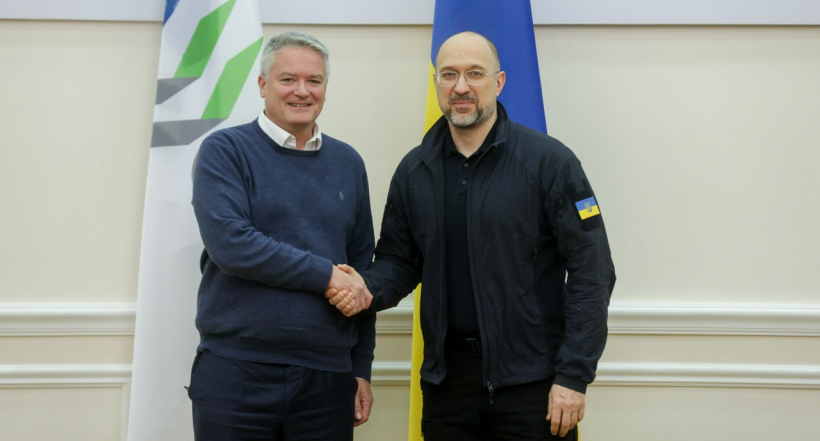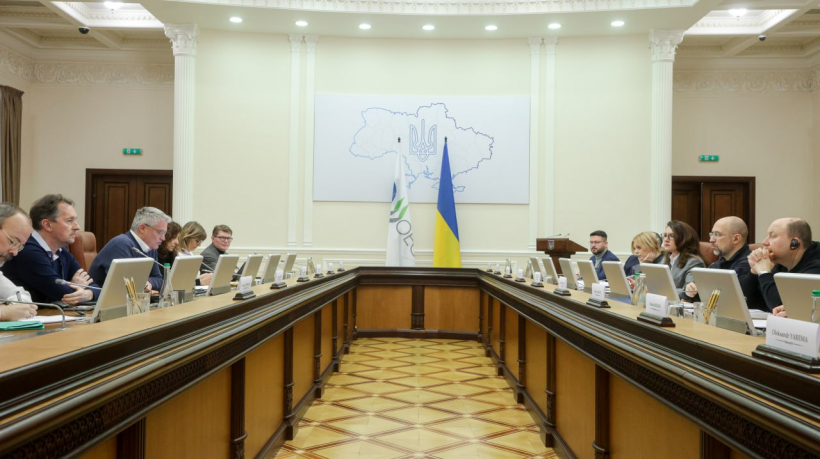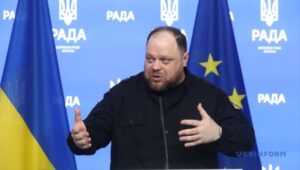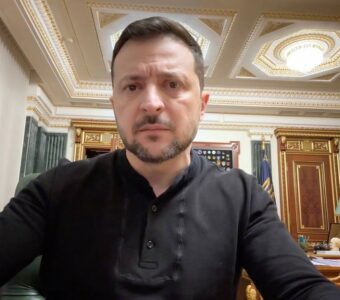Utilizing frozen Russian assets should be key solution for Ukraine's reconstruction – PM

Photo: Government portal
On February 6, Prime Minister Denys Shmyhal met with the Organization for Economic Cooperation and Development Secretary General Mathias Kormann. The First Vice Prime Minister of Ukraine — Minister of Economy Yuliia Svyrydenko, Minister of the Cabinet of Ministers of Ukraine Oleh Nemchynov, and representatives of the Ministry of Finance, Ministry of Statistics, and Ministry of Justice also joined the discussion on the continuation of cooperation.
The Government portal reports this.
"Acquiring full membership in the Organization is one of our priorities. After all, this is a marker of Ukraine's readiness to join the EU and a signal to foreign companies that Ukraine is a promising country for investments," Denys Shmyhal emphasized.

Photo: Government portal
The Prime Minister thanked Mathias Kormann for the approved OECD program for Ukraine and emphasized that the Government has improved state functions, despite Russia's aggression, and demonstrates a high ability to carry out reforms. This, in turn, was noted in the Organization.
"Our partners emphasized the progress achieved, despite the war, in such areas as public administration, digitalization, the fight against corruption, and the simplification of permit procedures. Introducing a graded system of payment for civil servants was noted as an important step in public administration reform. We are continuing the corporate reform," said the head of government.
In addition, Denys Shmyhal asked the OECD to assist in developing international recommendations on confiscating such assets, because he is convinced that Russia's frozen and seized assets should become a key source for the reconstruction of Ukraine.
The Prime Minister thanked the OECD team for strong support at the international level and assistance in implementing reforms.
For reference:
From 2022 to 2023, and as of the beginning of August, the Security Service of Ukraine seized the assets of Russian business people financing the war, worth almost 190 billion hryvnias.
In addition, the assets of Russian oligarchs are being seized abroad:
- Great Britain has frozen more than 18 billion pounds ($23 billion) of assets and imposed sanctions against more than 1,550 Russians since the Russian Federation's full-scale invasion of Ukraine and as of mid-June this year.
- In the Czech Republic, the assets of Russian oligarch Volodymyr Yevtushenkov, who is close to Russian President Vladimir Putin, were frozen.
- Poland also offered to give the frozen assets of the Russian Federation to Ukraine and EU countries.
- In Germany, blocking Russian assets worth more than 4 billion euros was possible.
- The EU is studying the procedure for the confiscation of 200 billion euros of frozen assets of the Russian Central Bank. The European Commission is also developing its proposals.
- Belgium created a special fund to support Ukraine in the amount of 1.7 billion euros, filled with taxes on Russian assets frozen in the country.
- In July, Italy announced that it had frozen the assets of Russian oligarchs worth about 2 billion euros after the Russian Federation invaded Ukraine last year.
- European Union ambassadors agreed on January 29 to use the profits from frozen Russian assets to help Ukraine.


















































